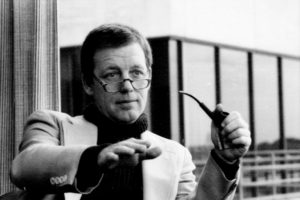From H.L. Mencken’s obit of William Jennings Bryan who was three times the Democratic candidate for President of the US, and the 41st Secretary of State but who was also a major opponent of Darwinism and a witness in the 1925 Scopes trial:
When I first encountered him, on the sidewalk in front of the office of the rustic lawyers who were his associates in the Scopes case, the trial was yet to begin, and so he was still expansive and amiable. I had printed in the Nation, a week or so before, an article arguing that the Tennessee anti-evolution law, whatever its wisdom, was at least constitutional – that the yahoos of the State had a clear right to have their progeny taught whatever they chose, and kept secure from whatever knowledge violated their superstitions. The old boy professed to be delighted with the argument, and gave the gaping bystanders to understand that I was a publicist of parts. Not to be outdone, I admired the preposterous country shirt that he wore – sleeveless and with the neck cut very low. We parted in the manner of two ambassadors.
But that was the last touch of amiability that I was destined to see in Bryan. The next day the battle joined and his face became hard. By the end of the week he was simply a walking fever. Hour by hour he grew more bitter. What the Christian Scientists call malicious animal magnetism seemed to radiate from him like heat from a stove. From my place in the courtroom, standing upon a table, I looked directly down upon him, sweating horribly and pumping his palm-leaf fan. His eyes fascinated me; I watched them all day long. They were blazing points of hatred. They glittered like occult and sinister gems. Now and then they wandered to me, and I got my share, for my reports of the trial had come back to Dayton, and he had read them. It was like coming under fire.
Thus he fought his last fight, thirsting savagely for blood. All sense departed from him. He bit right and left, like a dog with rabies. He descended to demagogy so dreadful that his very associates at the trial table blushed. His one yearning was to keep his yokels hated up – to lead his forlorn mob of imbeciles against the foe. That foe, alas, refused to be alarmed. It insisted upon seeing the whole battle as a comedy. Even [Clarence] Darrow, who knew better, occasionally yielded to the prevailing spirit. One day he lured poor Bryan into the folly I have mentioned: his astounding argument against the notion that man is a mammal. I am glad I heard it, for otherwise I’d never believe it. There stood the man who had been thrice a candidate for the Presidency of the Republic – there he stood in the glare of the world, uttering stuff that a boy of eight would laugh at. The artful Darrow led him on: he repeated it, ranted for it, bellowed it in his cracked voice. So he was prepared for the final slaughter. He came into life a hero, a Galahad, in bright and shining armor. He was passing out a poor mountebank.
Lovely term, that: mountebank.

